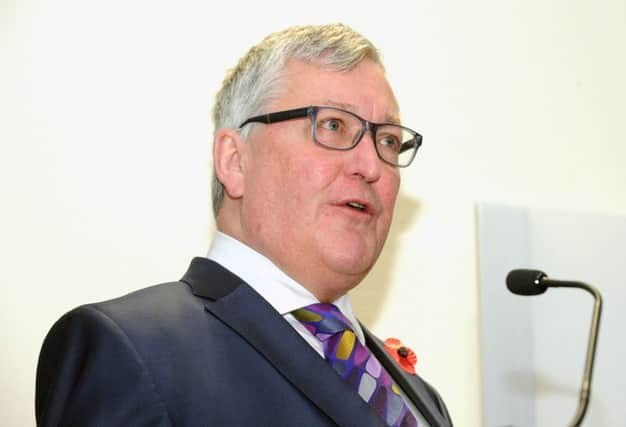Rural Scotland to receive £640m from EU over 2017-18


At the same time, the Rural Secretary warned support for the sector is being put at risk by the prospect of a hard Brexit.
Advertisement
Hide AdAdvertisement
Hide AdScotland is expected to receive 4.6 billion euro (£3.9 billion) in total from the European Union, around £500 million a year, between 2014 and 2020.
The Scottish Government said that without reassurance that funding would continue after leaving the EU, rural communities face losing subsidies including payments under the Common Agricultural Policy (CAP) and the rural development programme.
Mr Ewing said: “Agreement on the Scottish budget means I can confirm that rural Scotland will receive over £640 million of support in the coming year.
“Much of that goes directly to farm businesses and crofters, but significant sums will also continue to be invested in grants for environmental measures, tree planting, food processing and maritime development.
“It helps to support jobs, businesses, infrastructure and livelihoods.
“Brexit puts this all at risk. While the UK Government has offered some assurances on funding over the short-term, which we have committed to pass on in full, there are still more questions than answers in the longer-term.
“For example, there are still no guarantees for the Less Favoured Area Support Scheme from 2019.
“The continued uncertainty could have a devastating impact on our farming and food sectors. Any moves to ‘Barnetise’ CAP payments could see Scotland lose up to half of the current CAP allocation, which has been tailored to meet our specific needs.
Advertisement
Hide AdAdvertisement
Hide Ad“Agriculture is fully devolved and the Scottish Government must retain powers to manage rural policy and determine funding levels.
“I am very clear that there may be issues where it will make sense to have a UK-wide framework. However, any such framework must be on the basis that the powers sit with the devolved administrations and any such frameworks must be entered into willingly and not imposed by the UK Government.”